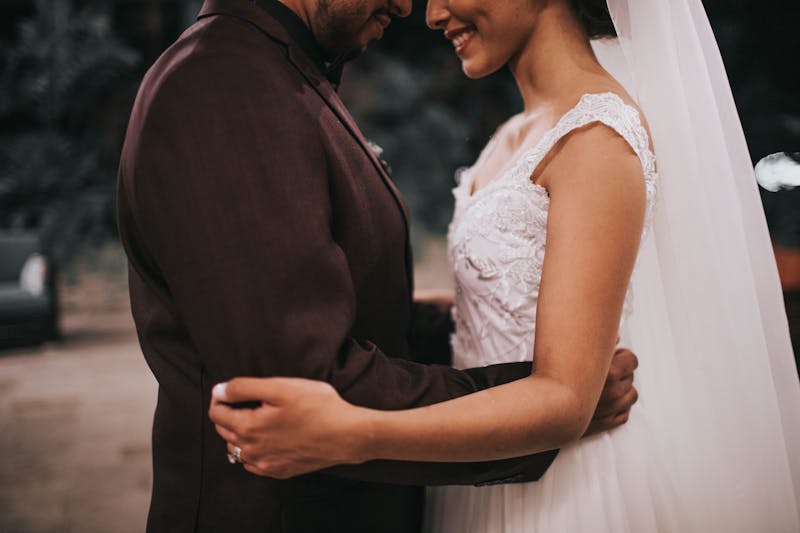How to Adjust Your Spouse’s Status After Entry Without Inspection With an Unlawful Presence Waiver

If your spouse entered the United States without inspection, the path to legal status is complicated, but not impossible.
The broken U.S. immigration system creates significant hurdles for these couples, but a process called the “Provisional Unlawful Presence Waiver” (Form I-601A) offers a potential solution.
Why Entry Without Inspection Complicates Adjustment of Status
When a foreign person enters the United States with a visa (even if they later overstay), they generally can adjust status within the U.S. if they marry a U.S. citizen. However, entry without inspection creates a fundamental legal barrier to this process.
Under immigration law, a person who entered without inspection cannot adjust status within the United States, with very limited exceptions (such as certain individuals covered under Section 245(i) of the Immigration and Nationality Act). This means the traditional path of filing Form I-485 (Adjustment of Status) after marriage to a U.S. citizen is typically not available.
Instead, the foreign spouse must:
- Leave the United States
- Attend an immigrant visa interview at a U.S. consulate abroad
- Re-enter with an immigrant visa
This creates a significant problem: when a person who has been unlawfully present in the U.S. for more than 180 days departs, they trigger what’s known as the “unlawful presence bars.” These bars prevent re-entry for either:
- 3 years (for unlawful presence of 180 days to 1 year)
- 10 years (for unlawful presence of more than 1 year)
This catch-22 situation traditionally forced families into an impossible choice: remain separated for years or continue living with an undocumented spouse in the U.S.
The Solution: The Provisional Unlawful Presence Waiver (I-601A)
Recognizing the hardship this situation created for American families, the government introduced the Provisional Unlawful Presence Waiver process in 2013, later expanding it in 2016. This process allows eligible individuals to:
- Apply for a waiver while still in the United States
- Receive a provisional approval before departing for their consular interview
- Minimize the time separated from their U.S. citizen family members
This waiver only addresses inadmissibility due to unlawful presence. If your spouse has other grounds of inadmissibility (such as certain criminal convictions, fraud, or prior removals), additional waivers may be required, or they may be ineligible for this process.
Step-by-Step Process for Adjustment Through the I-601A Waiver
Step 1: File an I-130 Petition for Alien Relative
The first step is for the U.S. citizen spouse to file Form I-130, establishing the legitimate marriage relationship. This petition proves your relationship is valid and creates the basis for your spouse’s eventual immigrant visa.
Required documentation typically includes:
- Marriage certificate
- Evidence of a bona fide marriage (joint bank accounts, lease/mortgage, photos, etc.)
- Birth certificates
- U.S. citizen’s passport or birth certificate
- Filing fee (currently $535)
Step 2: Wait for I-130 Approval
USCIS will process your petition, which can take several months. Once approved, the case will be forwarded to the National Visa Center (NVC).
Step 3: Begin Immigrant Visa Processing with NVC
After receiving your case, the NVC will:
- Assign a case number
- Send instructions for proceeding with the consular process
- Request additional forms and documentation
- Collect the immigrant visa application fee
You’ll need to complete this process, but do not schedule the consular interview yet.
Step 4: Prepare and File the I-601A Waiver Application
This is the critical step where your spouse applies for the provisional unlawful presence waiver. To qualify, they must:
- Be physically present in the United States
- Be 17 years of age or older
- Have an approved I-130 with an immigrant visa case pending
- Have paid the immigrant visa processing fee
- Be able to demonstrate that their U.S. citizen spouse would experience “extreme hardship” if they were denied admission
The “extreme hardship” standard is crucial. This goes beyond the normal separation that families experience during immigration processing. You must demonstrate that your particular circumstances would create unusual hardship for the U.S. citizen spouse if the foreign spouse is denied admission.
Examples of potential extreme hardship factors include:
- Serious medical conditions requiring the foreign spouse’s care or support
- Significant financial hardship that would result from separation
- Dangerous country conditions in the foreign spouse’s home country
- Special needs of U.S. citizen children
- Psychological impact based on specific, documented mental health conditions
Documentation for the I-601A waiver typically includes:
- Completed Form I-601A with filing fee (currently $630 plus $85 biometrics fee)
- Copy of the I-130 approval notice
- Proof of relationship to the qualifying relative (U.S. citizen spouse)
- Extensive documentation of extreme hardship
- Copy of the immigrant visa fee payment receipt from NVC
- Medical records, psychological evaluations, financial documents, country condition reports, and other evidence supporting the hardship claim
Step 5: Attend Biometrics Appointment
After filing the I-601A, your spouse will receive a notice to appear for a biometrics appointment, where their fingerprints and photo will be taken for background checks.
Step 6: Wait for I-601A Decision
USCIS will evaluate the waiver application, focusing primarily on:
- Whether the claimed relationship to the qualifying relative is valid
- Whether extreme hardship has been sufficiently demonstrated
- Whether the waiver should be granted as a matter of discretion
This process can take several months to over a year.
Step 7: If Approved, Complete Consular Processing
If the waiver is approved, your spouse can proceed with consular processing:
- Complete any remaining NVC requirements
- Schedule the immigrant visa interview at the U.S. consulate in their home country
- Prepare for a medical examination in their home country
- Gather additional documents required for the interview
Step 8: Attend the Consular Interview and Return to the U.S.
Your spouse will then:
- Travel to their home country
- Attend the immigrant visa interview
- If approved, receive an immigrant visa packet
- Enter the United States as a lawful permanent resident
The time abroad is typically just a few weeks, rather than the 3-10 years that would be required without the waiver.
Important Considerations and Potential Pitfalls
Other Grounds of Inadmissibility
The I-601A waiver only covers unlawful presence. If the consular officer identifies other grounds of inadmissibility during the interview (such as fraud, criminal issues, or prior immigration violations), your spouse may be denied despite having an approved I-601A waiver.
Removal Proceedings
If your spouse is currently in removal proceedings, they are ineligible for a provisional unlawful presence waiver unless their case has been administratively closed and has not been put back on the calendar.
Final Orders of Removal
If your spouse has a final order of removal, they must first have an approved Form I-212 (Permission to Reapply After Removal) before they can apply for the I-601A waiver.
No Appeals for Denials
If the I-601A waiver is denied, you cannot file an appeal or motion to reopen. Your options are limited to filing a new I-601A application or pursuing a standard I-601 waiver after the consular interview abroad.
How the Law Office of Lina Baroudi Can Help
The provisional waiver process requires careful preparation and strategic planning. The process is unforgiving of errors, with limited opportunities to correct mistakes.
Our office can help by:
- Assessing your spouse’s complete immigration history for potential issues
- Developing a comprehensive extreme hardship case
- Preparing thorough documentation for both the I-130 and I-601A
- Addressing any complicating factors, such as prior removal orders
- Preparing your spouse for the consular interview process
- Developing contingency plans if unexpected issues arise
The provisional unlawful presence waiver represents a significant opportunity for families affected by entry without inspection. While the process remains complex and demanding, it offers a path to legal status with minimized family separation.
If your spouse entered the United States without inspection, don’t assume that legal status is impossible. The I-601A waiver process may provide a solution, allowing your spouse to obtain lawful permanent residence while minimizing the time spent apart.
Contact the Law Office of Lina Baroudi today to schedule a consultation and explore whether the provisional unlawful presence waiver is right for your family situation. We understand the immigration system’s challenges and are committed to keeping families together despite the obstacles it creates.



